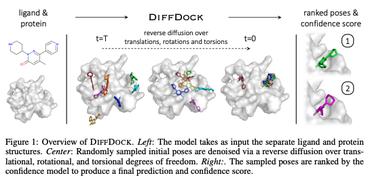Widely Used and Fast De Novo Drug Design by a Protein Sequence-Based Reinforcement Learning Model
De novo molecular design has facilitated the exploration of large chemical space to accelerate drug discovery. Structure-based de novo method can overcome the data scarcity of active ligands by incorporating drug-target interaction into deep generative architectures. However, these strategies are bottlenecked by the small fraction of experimentally determined protein or complex structures. In addition, the cost of molecular generation is computationally expensive due to 3D representations of both molecule and protein. Here, we demonstrate a widely used and fast protein sequence-based reinforcement learning (RL) model for drug discovery. In the generative model, one of the reward components, a binding affinity predictor, is based on 1D protein sequence and molecular SMILES. As a proof of concept, the RL model was utilized to design molecules for four targets. The generated compounds showed bioactivities by the validation of both QSAR and molecular docking with experimental 3D binding pockets. We also found that the performance of generated molecules depends on the selection of data source training for the binding predictor. Furthermore, drug design for a kinase without any experimental structure, CDK20, was studied by our model. With only 1D protein sequence as input, the generated novel compounds showed favorable binding affinity based on the AlphaFold predicted structure.
PDF Abstract


